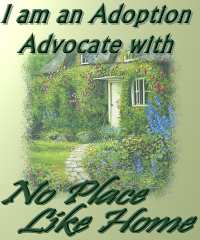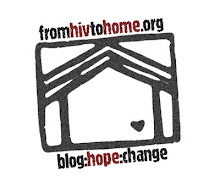This article is taken from the Ghana Statesman
Orphanage reforms on track
Richard Adabrah-Klu, Project Manager of Orphanage Africa, has disclosed that as part of the Care Reform Initiative project, government orphanages, and few chosen private orphanages will be reformed to very high standards and best practices in the very near future.
The CRI project is a multi-sectorial approach to strengthening the Department of Social Welfare and Civil Society to implement de-institutionalisation and provide access to alternative forms of family-based care for children without appropriate parental care.
According to him, through the CRI project, the DSW sponsored by Orphanage Africa from 2006 to 2007 has organised training programmes for 256 Social Workers; 5 nationwide training programmes for 149 Home Managers; undertook a census of OVC in residential care; and drafted the legislation for Foster Care, Residential Care and the Standards for Residential Care.
Speaking at a breakfast working forum on international adoption in Accra, Mr Adabrah-Klu said also as part of reforms to revamp operations of orphanages in Ghana, social workers will be adequately paid and motivated to collate and maintain an Orphan and Vulnerable Children database, which is crucial to the Care Reform Initiative underway.
The Department of Social Welfare, which has the mandate over all orphanages in the country and also protects the welfare of the child lacks most of the basic logistics to perform its duties effectively.
According to Mr Adabrah-Klu, results of a UN global study revealed that orphanages are often set up by States, or a well meaning donor, for children in need of care. He said the initial intentions of these orphanages are often well meaning but the results are totally inadequate, and in Ghana, culturally inappropriate.
He explained that it is very important to get children out of homes or orphanages into families and the community because children living in orphanages do not develop social networks in their community, whiles their rights to privacy is invaded, and their ethnic and religious identities are compromised.
He further pointed out that the child's interpersonal skills become limited because of lack of exposure to daily life and grows up with a feeling of being unloved, and with little self esteem.
Mr Adabrah-Klu said it is to address these lapses that the Department of Social Welfare under the auspices of Orphanage Africa introduced the CRI, which started in 2006 and expected to be fully implemented in 2011.
He said CRI is targeted at resettling the vast majority of children in orphanages in a family care context, whiles fostering and adoption rates will increase both on a national and international level.
He said the quality of life of children moved from institutions will improve dramatically, as they reclaim their identities. He said the public will be sensitized as to the need for family community care.
"Under this initiative, Ghana will use institutionalization as a last resort for OVC preferring the use of social support systems such as cash transfers to promote in-family care," he added.
Orphanage Africa's aim is to help orphans and vulnerable children in Ghana to grow up in healthy, nurturing environments that provide quality care, protection, education and support.
Mr Adabrah-Klu said some of the challenges facing the CRI project include the need to provide operators of unauthorized children’s home with alternative income sources such as training in social work, school management, mother and child care, transition care and foster care; lack of national protocols common to the police, health and judiciary for dealing with OVC, especially trafficked and abused children in need of temporary care and protection, who often end up in Children’s Homes far from their communities for want of a better facility and the need to provide special attention to the importance of regional reception centers for these children so that their local ties are disrupted as little as possible.
He said training of these operators in alternative or related skills is a major objective of the CRI.





















1 comment:
Love the new blog! What a fantastic idea!!! I wish there was a place like this when I was adopting. Especially when I adopted my first daughter from Korea. There was no where to go for information.
Of course you can link me. Just tell me what I can do to help! : )
Post a Comment